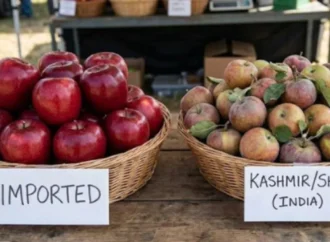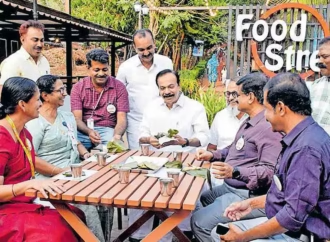Introduction
In a stunning turn of events, the Central Bureau of Investigation (CBI) has apprehended an Assistant Director associated with the Food Safety and Standards Authority of India (FSSAI). The case involves allegations of bribery, corruption, and clandestine dealings. Let’s delve into the details of this scandal that has sent shockwaves through the FSSAI and the private testing industry.
The Players Involved
- Amol Jagtap (Assistant Director, FSSAI, Regional Office, Mumbai): The accused official who allegedly accepted bribes.
- Vikas Bhardwaj (Director, Reliable Analytical Laboratories Pvt. Ltd): The head of a private testing lab implicated in the case.
- Harshal Chougule (Senior Manager, Reliable Analytical Laboratories Pvt. Ltd): An accomplice in the bribery scheme.
- Company Representative: Another individual linked to the private company.
The Bribery Scheme
Jagtap, stationed in Mumbai, was allegedly receiving bribes to expedite the clearance of pending bills for Reliable Analytical Laboratories Pvt. Ltd. This chain of chemical laboratories, notified by the FSSAI, analyzes samples forwarded to it by the authority. The accused Assistant Director reportedly agreed to accept bribes from the company’s Senior Manager, who acted as a conduit for the Director. The illegal gratification amounted to Rs. 1.20 lakh.
The Sting Operation
The CBI laid a trap based on a complaint, leading to Jagtap’s arrest red-handed while receiving the bribe from Chougule and another representative of the private company. The subsequent searches at the accused’s residence yielded significant evidence:
- Cash: A staggering Rs. 37.3 lakh in cash.
- Gold: Approximately 45 grams of gold.
- Documents: About various immovable properties and other incriminating evidence.
The Legal Ramifications
The arrested individuals have been produced before the competent court and remanded to police custody until May 8, 2024. The gravity of the charges underscores the need for a thorough investigation and swift justice.
Implications for Food Safety
The FSSAI, a statutory body responsible for regulating food articles in India, must now grapple with the fallout from this corruption. Public trust in food safety standards hangs in the balance, and the agency’s reputation is at stake.
Conclusion
As the investigation unfolds, questions arise about the integrity of our food safety system. The FSSAI must reevaluate its processes, ensuring transparency, accountability, and zero tolerance for corruption. The arrest of an Assistant Director serves as a stark reminder that no institution is immune to malfeasance.
In the wake of this shocking revelation, the FSSAI faces a critical juncture. Will it emerge stronger, committed to safeguarding public health, or succumb to the shadows of scandal? Only time will tell.
 Food Manifest
Food Manifest 


















